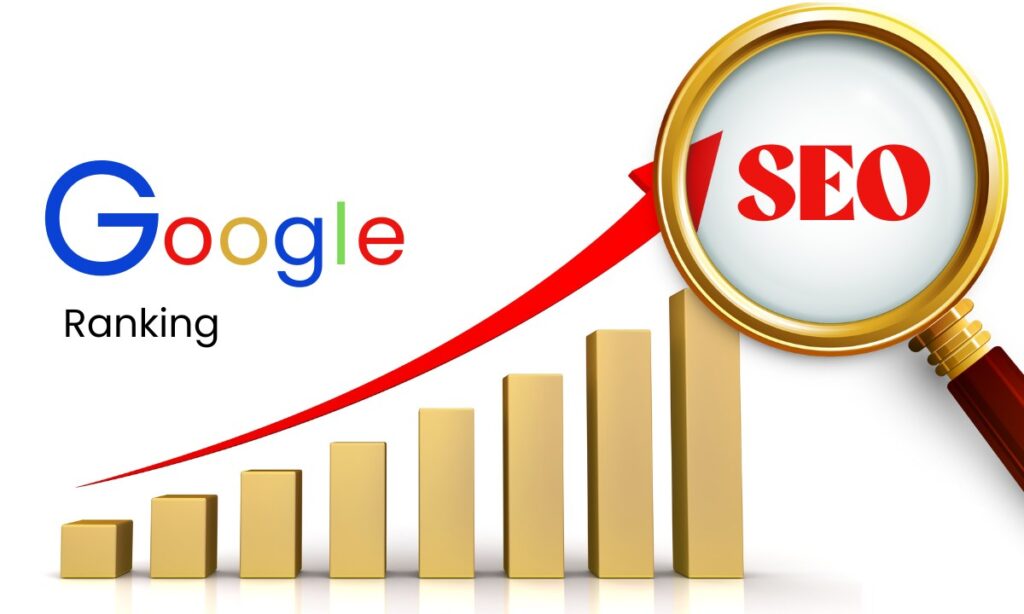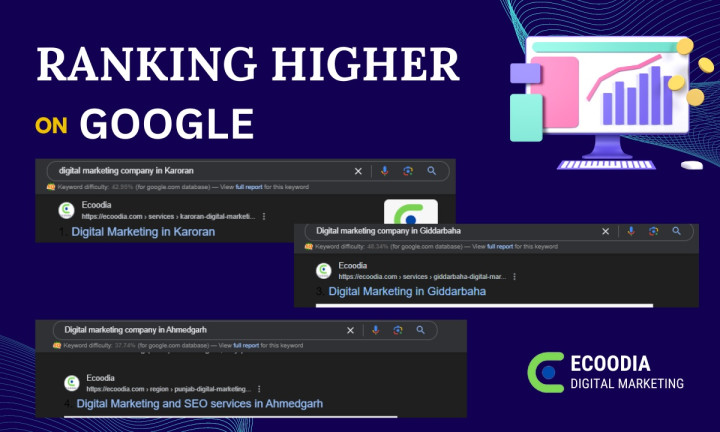Ranking Higher on Google: Proven Strategies for Content Creators to Rank Higher 2025
SEO
ranking higher on Google
backlinks
site speed
content marketing
mobile optimization
user intent
long-tail keywords
Google search
technical SEO
Author: Ecoodia
Date: 22/05/2025 04:37 PM
You are not alone! Every
business, blogger, and entrepreneur asks the same thing: How do I rank
higher on Google? It is not just about vanity – ranking high on Google
means more traffic, more leads, more sales, and ultimately more success.
But let is be real for a
second. Most people are confused and overwhelmed by SEO jargon, and
the endless advice out there can make your head spin. How many
keywords? What about backlinks? Is it too late for my site to
rank?
If you have been asking yourself any of
these
questions, this guide is for you. We are going to strip down the
complex, show you what really works, and give you an easy-to-follow
roadmap to get your content ranking higher on Google. Let us cut the
fluff and get to the good stuff!
The Power of Ranking Higher on Google
Before we dive into the
tactics, here is why this matters:
- 75% of users never
scroll past the first page of search
results.
- Google processes over 8.5 billion
searches a day.
- Organic search
accounts for 53% of all website
traffic.
In short, ranking higher on
Google isn’t just about being found—it’s about being chosen. But how
do you crack the code? Let's break it down.

How Rank Higher on Google
1. Why Is It So Hard to Rank on Google?
It’s hard because everyone is fighting for the same top spots. Google uses over 200 ranking factors, so the game isn’t just about stuffing your site with keywords anymore. Instead, you need to focus on building trust and providing value to users.
Google rewards sites that satisfy user intent and provide a seamless experience.
2. What Are the Most Important Ranking Factors?
Here’s a quick breakdown of the top ranking factors that matter most:
- Content relevance: Your content must match what people are searching for.
- Backlinks: Quality over quantity. Backlinks fromauthoritative sites act as a vote of confidence.
- Mobile-friendliness:Google prioritizes mobile-first indexing.
- Page speed: Slow sites kill rankings. Speed matters!
- User engagement: Bounce rates, time on page, and click-through rates (CTR) impact rankings.
Remember, Google’s goal is to show users the best possible content for their query.
3. How Long Does It Take to See Results?
SEO is a long game. Generally, it takes 3 to 6 months to start seeing results. However, the timeline depends on factors like your website’s authority, your niche, and how competitive your keywords are.
Don’t give up if you don’t see immediate changes. SEO is all about persistence.
4. Should I Focus on Short or Long-Tail Keywords?
Both are important, but long-tail keywords often yield faster results. Why? They’re less competitive and usually match the intent of people further down the buying funnel.
For example:
- Short-tail: “Fitness tips”
- Long-tail: “Best fitness tips for beginners at home”
Long-tail keywords may not have as much search volume, but they bring in more targeted traffic.
5. Do I Really Need Backlinks?
Yes, but it’s not just about having any backlinks—it’s about having high-quality backlinks from reputable websites. Backlinks are still one of the strongest ranking signals because they show Google that your content is trustworthy and authoritative.
Here’s how to get quality backlinks:
- Guest posting on industry blogs.
- Creating shareable content like infographics, case studies, or unique research.
- Building relationships with influencers or journalists in your niche.
You Much Read: Index Backlinks in 2025: Boost Your SEO Rankings Faster
Strategies to Rank Higher on Google: Actionable Tips
Now that we’ve covered the basics, let’s get into the actionable steps to boost your Google rankings.
1. Optimize for User Intent (a.k.a. Know Your Audience)
One of the biggest ranking factors is how well your content matches user intent. People search with a goal in mind, and your content needs to deliver exactly what they want.
How to optimize for user intent:
- Research common questions and pain points in your niche.
- Use LSI keywords (semantically related terms) to cover a topic thoroughly.
- Answer questions directly, then expand with additional value.
2. Create High-Quality Content
Content is still king. Google prioritizes high-quality content that answers users’ queries in-depth. The better your content, the longer people stay on your site, which boosts rankings.
Content best practices:
- Use short paragraphs and bullet points to break up content.
- Include multimedia like images, videos, and infographics.
- Keep it actionable: Give readers practical tips and insights they can use immediately.
- Write longer articles: Studies show that posts over 1,800 words rank better.
3. Boost Site Speed
Google takes site speed seriously. A faster website equals a better user experience, and that equals higher rankings.
Here’s what you can do:
- Use Google’s PageSpeed Insights to test your site’s speed.
- Compress images to reduce file sizes.
- Use lazy loading for images and videos so they only load when needed.
- Upgrade to a faster hosting service if your current one is lagging.
4. Mobile Optimization Is a Must
With more than 60% of Google searches coming from mobile devices, it’s essential that your site is mobile-friendly.
- Use a responsive design that adapts to different screen sizes.
- Ensure text is large enough to read on small screens.
- Optimize buttons for easy tapping on mobile devices.
5. Build Authoritative Backlinks
Quality backlinks are one of the most critical ranking factors. To build backlinks:
- Create link-worthy content like in-depth guides, studies, and unique insights.
- Reach out to websites in your industry and offer to write guest posts.
- Engage in content collaboration with other experts in your field.
Remember, it’s about building relationships, not just collecting links.
6. Focus on Technical SEO
This might sound intimidating, but technical SEO is vital to improving your ranking.
Key things to check:
- Site structure: Is your site easy to navigate? Are your URLs clean?
- XML sitemap: Submit this to Google for faster indexing.
- Schema markup: Use it to help search engines understand your content better.
Conclusion: Ready to Rank Higher?
Ranking higher on Google isn’t a sprint, but a marathon. The key is to stay consistent, focus on your audience, and keep optimizing. Remember, Google rewards sites that are user-friendly, mobile-optimized, and filled with high-quality, relevant content.
Follow the strategies we’ve outlined, and over time, you’ll see your rankings climb, traffic increase, and results improve.


